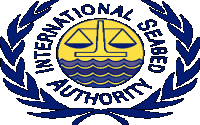International Seabed Authority

Quicktabs: Keywords
The authority is not only a regime designed to manage the exploitation of the mineral resources of the deep ocean floor. It is also a prototype for new multilateral regimes in other spaces and resources. Innovations such as chambered voting by interest groups, emphasis on decision-making by consensus, formal roles for panels of experts and extensive contributions by expert bodies and individuals will be test- ed in the authority, and the successes and failures in this regime will provide lessons for the negotiation of otber regimes in the future. Members have already indicated the importance of U.S. participation in the organization through the 1994 Agreement, which addressed all the U.S. concerns witb tbe seabeds issues in UNCLOS. The opportunity to help lead this organization tbrough its substantive contributions, and even more through its inspirational standards, is now here. The Bush administration bas given its support to U.S. ratification of UNCLOS and the 1994 Agreement. The Senate Foreign Relations Committee bas endorsed it unani- mously. The potential for U.S. leadership in a new multilateral organization rests now with tbe leadership of tbe U.S. Senate, whicb should move forward by giving its advice and consent to the convention and tbe 1994 Agreement on Implementation.
By ratifying the treaty, the U.S. will not instantaneously regain its former influence, but it will be a huge step in the right direction compared to its static approach for the past three decades.187 Upon ratification, the U.S. will first regain its seat on the ISA’s Council.188 In addition, the U.S. will gain “important veto rights over distribution of any future revenues from deep seabed exploitation to national liberation groups.”189
Not only will the U.S. regain a seat on the ISA’s Council, but also it will have the ability to participate in the elections of judges for the International Tribunal for the Law of the Sea,190 members of the Commission on the Limits of the Continental Shelf (CLCS),191 and other arms of the ISA.192 This is a critical opportunity for the U.S. to place its own representatives in key areas of the ISA to help restore U.S. presence in vital matters concerning the Area.193 Furthermore, by reasserting itself as an authoritative component in the ISA, the U.S. will be better able to sway other nations in the issuing of decisions by the ISA.194 By taking this route versus obtaining a “veto” power over all ISA decisions, the U.S. will be more respected by Member States rather than being seen as a haughty and stubborn Western power as characterized by Molitor.195
